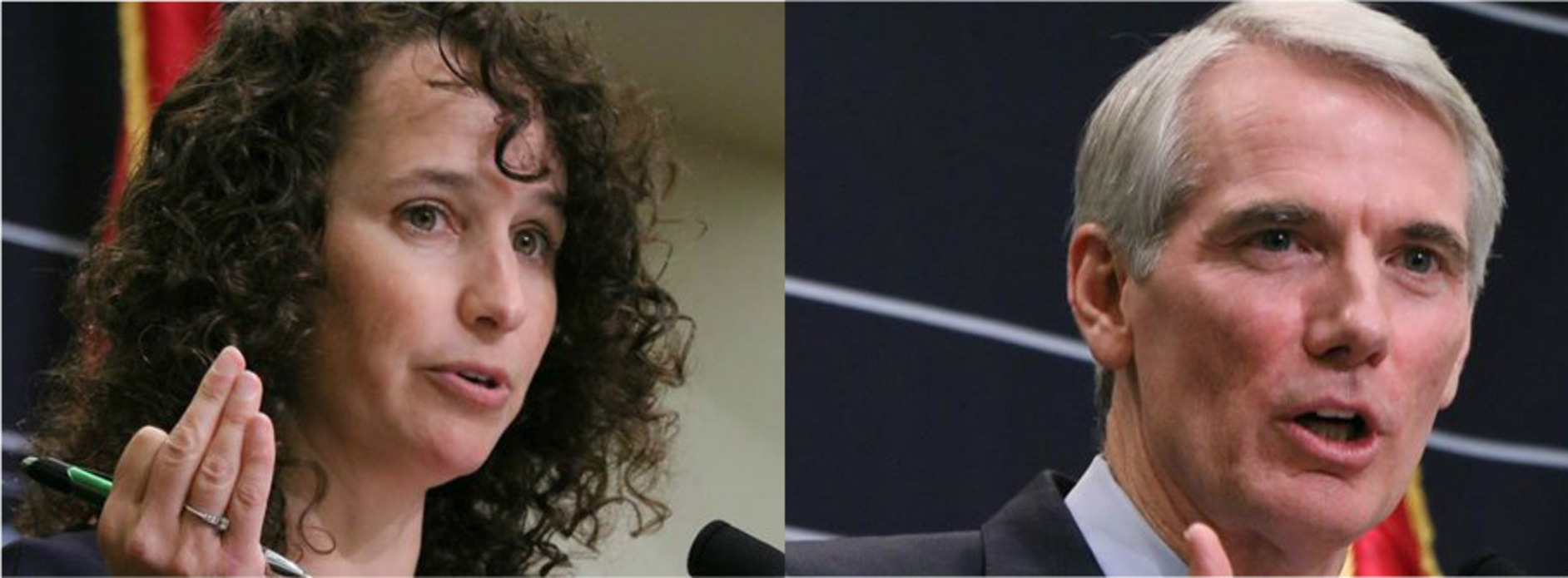Thursday, July 31, 2014
Who said it?
Ok, friends, it’s time for a little game we like to call “Name the speaker.” We’ve got two speakers from the last two weeks. Chances are you didn’t see both. On July 18, Rebpublican Senator Rob Portman addressed an audience heavily weighted to the political right. The following week, think tank founder Amy Hanauer of Policy Matters Ohio spoke. They're officially non-partisan, but get accused of leaning leftward.
We looked carefully and didn’t spot too many repeat customers—maybe 30, tops. That’s ok, though. It gives us a reason to play the game. See if you can identify who said what.
1. In the U.S. in general and in Ohio in particular, we are not increasing the number of jobs or good jobs that we need. What this means is people are remaining jobless or trapped in bad jobs for far too long. It is hard to fully capture the long-term harm this does to people in our economy.
2. John Kennedy once said famously “A rising tide lifts all boats.” But even during good economic times, what happens? People fall through the cracks. And they continue to today.
3. There has been about 15 trillion dollars spent on poverty programs since the War on Poverty began…. More money isn’t the only answer. It may be part of the answer in programs that work.
4. For those without jobs, the results can be brutal. The share of Ohio children living in deep poverty—those at less than 50 percent of the federal poverty level, rose from nine to 12 percent in recent years. Those families are living on less than $10,000 a year.
5. When you grow your economy from the middle out, when you make sure that working people have enough to spend and re-spend, it actually can be job generating…. If it does not fully come through, if there is one thing that I want to leave people with it’s that I really value work.
6. Right now, more than half the people who get out of prison are back in the system within two to three years. That’s at a tremendous cost to our communities. There’s costs in terms of crime, costs in terms of these families, unbelievably expensive to the tax payers. …
7. Joblessness means people get poor, they exhaust their savings, they get foreclosed upon and take out payday loans. All of the obvious things associated with not having a paycheck. But it’s a lot more than that. People’s skills erode, their health declines, they become less and less likely with each passing month to ever get a good job again. Their families can break up and their families less likely to thrive in school and in future careers.
8. We need to consider the depths of the challenge we face with regard to poverty. If you take someone from a broken home, who is struggling with drug addiction, maybe is in and out of prison, someone who is dealing with the scars of abuse or sexual exploitation, you can provide food, shelter and skills—you can provide all sorts of help—but even with all that, it’s hard for that person dealing with all those underlying problems to get on his feet or her feet. It doesn’t matter how good the economy is or how much you spend on traditional poverty programs. If you don’t deal with some of these underlying problems, you’re not going to get at it.
So, why this exercise? It has to do with who shows up and who doesn't and the fact that all of you care about the community and have a lot more in common than you think. Answers are below.

Correction (8/1/2014): The title was altered to correct the suggestion that Policy Matters Ohio is anything other than non-partisan, which it is.






